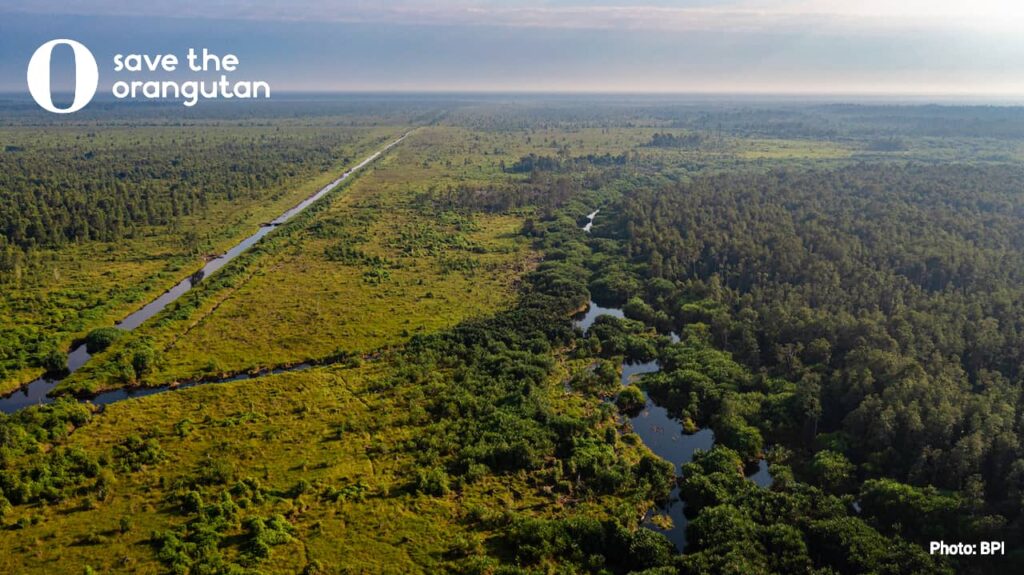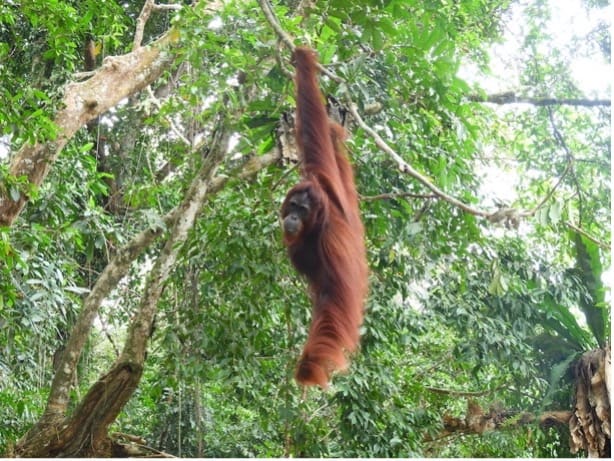Save the Orangutan has, in cooperation with Borneo Orangutan Survival Foundation (BOSF), been running a school project with focus on adaptation to climate change. The project, which recently ended, has in a short time given children in Mawas much more insight into the importance of nature, the environment and extreme weather phenomena.
In just one year, there has been a fantastic development with the children’s knowledge of nature in two villages in Mawas, Borneo. The villages are surrounded by rainforest and located in the Mawas area, where Save the Orangutan, together with our Indonesian partner BOSF, has been involved for many years. Village communities are particularly vulnerable to climate change and the consequences of weather phenomena such as El Niño and La Niña.
Therefore, BOSF and Save the Orangutan, in a school project that has just been completed, have worked to ensure that the children in the villages receive education that gives them a better understanding of the importance of climate change for them and nature. It makes them better prepared when the consequences of the changes hit them. Among other things, the project has given the children an understanding of why there have been more floods and longer droughts in Borneo in recent years.
“It is quite impressive what has been achieved in just one year. Teachers and students have gained a lot from the project, which included study visits to the peat swamp forest. It led to a greater understanding of the consequences in their immediate environment, explains Marie Sigvardt, Program Manager at Save the Orangutan.
Read more about the peat swamp forest

Increased awareness
Children and young people in Borneo are of utmost importance for the rainforest. The hope is that they will become its protectors in the future.
“The project was about giving the youth an understanding of and a renewed love for the environment,” says Jhanson Regalino, Program Manager at BOSF Mawas.
This includes, among other things, knowledge of what to do if you see an orangutan in a field, or in a village. A situation that is not at all unrealistic when you live near the rainforest.
“Pupils can now influence their parents not to cut down trees that can serve as food for orangutans. Villagers have also become more aware when they come across orangutans in the fields and have started reporting this to us. There have been two recent reports of observations,” explains Regalino.
When BOSF receives word that an orangutan has been seen in a local community, they notify the authorities and together they ensure that the orangutan is rescued and relocated to another area, or led back to its own forest.
Support Save the OrangutanSpreading to more schools
In all our projects, there is a great focus on how the positive results can continue, even after the project has ended. For this project, learning materials were developed that can be used not only in the two villages, but throughout the district.

“The local politicians are very positive about spreading the material to many more schools and it will really make a difference. Both for the residents, nature and the orangutans in the area. That’s why spreading the educational material is something that the BOS Foundation and Save the Orangutan continue to work on”, explains Marie Sigvardt.
In addition to teaching children and adults, the project had a broad focus on adaptations to climate change. It was, among other things, about the financing of firefighting groups.